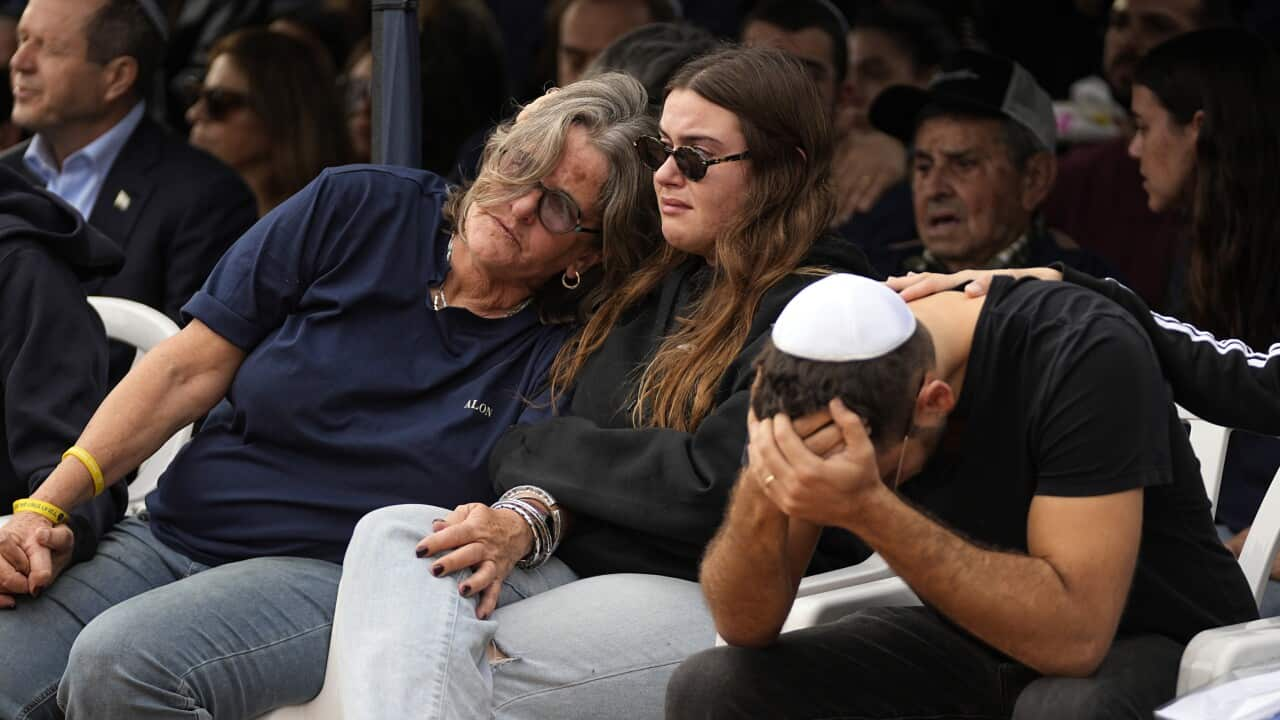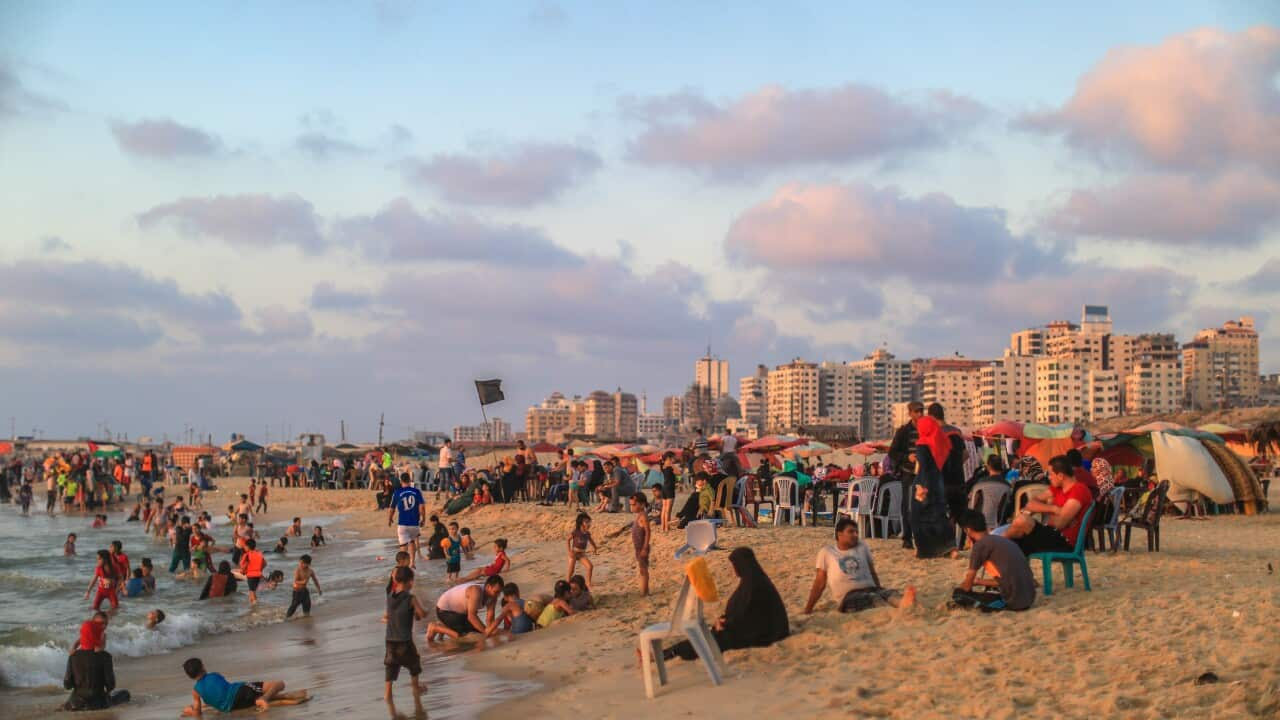Key Points
- Israel says close to half the people who were abducted during Hamas’ 7 October attack are still being held captive.
- The majority of those still thought to be in captivity are men, while most of those released are women and children.
- Relatives of those still in captivity are calling on Israeli authorities to do more to ensure their safe retrieval.
Israel says close to half the estimated 240 people who were abducted during Hamas’ 7 October attacks are still being held captive in Gaza.
Following , at least 129 abductees remain unaccounted for, according to the Israeli prime minister’s office and the Hostages and Missing Persons Families Forum – and at least 21 of those are believed to be dead.
This is in addition to the three Israeli hostages the Israel Defence Forces (IDF) after reportedly misidentifying them as a threat.
There are for more abductees to be released, with Ismail Haniyeh, the top political leader of Hamas, making a rare visit to Egypt on Wednesday for talks about a possible second hostage deal.
This followed comments by Israeli Prime Minister Benjamin Netanyahu on Saturday which appeared to confirm that new Qatar-mediated negotiations were underway.
Netanyahu was tight-lipped about the details of the negotiations, saying it would be a mistake to "relay our calculations to Hamas, to the world".
In addition to those taken captive in the 7 October attacks, around 1,200 were killed in Israel. More than 20,000 people have since been killed in Gaza, with Israel vowing to destroy Hamas and continue military action until all hostages are released.
Here's what we know about those still being held in Gaza.
Who are the hostages?
The hostages being held captive by Hamas are a mix of Israelis and non-Israelis, civilians and soldiers, men, women, children, and the elderly.
The majority of those still thought to be in captivity are male, while those released in last month’s hostages-for-prisoners exchange were predominantly women and children. The Israeli prime minister’s office said 19 women and two children were still believed to be held.

Israeli soldier Ori Megidish (centre) was kidnapped by Hamas gunmen who rampaged through Israel on 7 October. She was later rescued. Source: AP / HO
Hamas has so far released 110 hostages across several batches, while 11 bodies have been recovered, according to the Israeli prime minister's office. These included the three men who were mistakenly shot by Israeli forces on Friday.
How are they being treated?
Most of the hostages who have already been freed have stayed away from the media, making it difficult to hear first-hand, primary source accounts of what their time in captivity was like. Some information has surfaced, however, via relatives and medical professionals who treated them upon their release.
Ronit Zaidenstein, head of the medical team at Shamir Medical Center in Tel Aviv, where 17 released Thai nationals were treated, said they had been fed "very unnutritious food" and lost "10 percent or more" of their body weight, Al Jazeera reported.
Merav Mor Raviv, whose cousin Keren Munder was held captive with her nine-year-old son and mother, meanwhile told Israel's Channel 12 that Hamas captors would motion with a finger across their throats as if to threaten them with death if they didn't do as they were told. That claim has been unable to be independently verified.
Several other relatives of hostages have spoken of the fear and distress they suffered while in captivity.

Yocheved Lifshitz (left) and Nurit Cooper, who were held hostage by Palestinian Hamas militants, were released on 23 October. Source: AP / AP
"They treated us gently, and provided all our needs," she said, recalling that her captors gave hostages "the same food they ate."
"They seemed ready for this, they prepared for a long time, they had everything that men and women needed, including shampoo," she said.
What about the hostages’ families?
Relatives of those still being held in captivity, who have spent months advocating for the safe rescue and return of the hostages, took to the streets of Israel in a rare protest at the weekend, as the accidental killing of three Israeli hostages by IDF forces was met with outrage and shock.
Yotam Haim, Samer Talalka, and Alon Shamriz were believed to have either "been abandoned or escaped" Hamas' captivity, according to an IDF official, when they approached Israeli forces on the morning of 15 December brandishing "a stick with a white cloth on it." The official said the IDF soldiers had felt threatened and opened fire.
The revelations triggered a spontaneous demonstration outside the IDF's headquarters in Tel Aviv on Friday night, in a plaza now known as 'hostage square', which was followed by a Saturday night protest led by the families of the hostages.

People at the funeral of Alon Shamriz, who was one of three Israeli hostages killed by the military in Gaza. Source: AAP / Ohad Zwigenberg/AP
"I think that if the hostages are indeed the priority then the government has disappointed in a big way," he said.
Raz Ben Ami, 57, was released from Gaza in November’s hostages-for-prisoners exchange, but her husband Ohad remains in captivity. Addressing the crowd on Saturday, she called on the Israeli authorities to prioritise the retrieval of the remaining hostages.
"A military operation alone won’t save the hostages' lives. Freeing the hostages in exchange for prisoners is urgent and critical … I’m begging you," she said. "You promised you would get the hostages back alive. What are you waiting for?"

People protest outside Israel Defence Forces headquarters in Tel Aviv on the weekend calling for the rescue of hostages held by Hamas in Gaza. Source: Getty / Alexi J. Rosenfeld
Hamas is a Palestinian political and military group, which has governed the Gaza Strip since the most recent elections in 2006.
Its stated aim is to establish a Palestinian state and stop the Israeli occupation of Gaza and the West Bank, illegal under international law.
Hamas in its entirety is listed as a terrorist organisation by the European Union and seven other countries, including Australia. But the UN Assembly rejected classifying Hamas as a terrorist group in a 2018 vote.
In 2021 the International Criminal Court opened an investigation into alleged Israeli war crimes in the Palestinian territories dating back to 2014, including the recent attacks of both Israel and Hamas.




